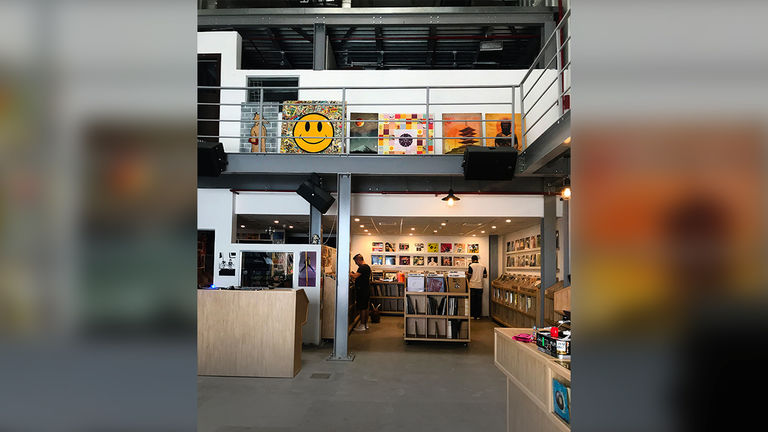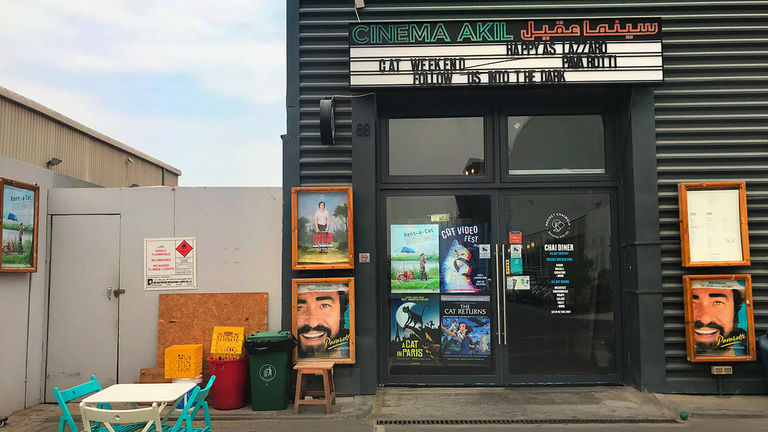With a reputation for being all things ultra-luxury, visitors to Dubai often arrive expecting mega shopping malls, ornate hotel rooms and luxury-car-filled streets. While that side of the Emirate certainly does exist, it’s not an apt description of the entire city. In one pocket of Dubai, far from the world’s tallest building and seven-star hotel, Al Quoz is an arts-focused neighborhood that’s rapidly getting noticed.
Formerly nothing but an industrial neighborhood, Al Quoz is transforming from a sprawling network of dust-filled streets home to factories, warehouses, storage units and auto shops, to the place where those in the know go to discover pop-up exhibitions, thought-provoking galleries and one-of-a-kind retail outlets.
A first stop here should be Alserkal Avenue. This cluster of galleries, exhibitions and warehouse studios is the epicenter of the Al Quoz arts scene. Clients can wander the unassuming streets and pop in and out of various galleries.
Must-visits include El Marsa Gallery, which opened in 2015 as a place to highlight art from across the Arab world, and Satellite, which is run by Emirati Rami Farouq and showcases unfinished design work before it bursts onto the art scene. Clients should also check out Leila Heller Gallery, an international outpost of the New York gallery known for cultivating the work of aspiring artists.
Tucked away in a corner of Alserkal Avenue is The Flip Side, Dubai’s first curated vinyl store, where clients can seek out unique records from across the Middle East and beyond. Next door, Cinema Akil is run by an Emirati with a passion for all things film. It screens cinematic classics, regional works and award-winning indie films and documentaries. If clients want an on-the-go caffeine boost, nearby Nightjar is known for its home-roasted beans. Visit in the early evening, and coffee comes accompanied by DJs spinning eclectic tracks.
 The Flip Side offers vinyl from around the world.
The Flip Side offers vinyl from around the world.
Credit: 2019 Haley KellyThe Courtyard is another must-do. Clients can escape the bustle of Dubai here as they meander through Moorish-inspired architecture, leafy plants and pretty water fountains. Inside, The Collective by Ripe acts as the antithesis of Dubai’s luxury label-loving malls and is home to Tribe — a cute little store selling handmade and sustainably sourced homewares, artwork and more. There’s also handmade swimwear on sale at Boho East, and intricate jewelry and hand-printed gifts for sale at Georges of Dubai. As bohemian as The Collective is, prices remain on par with Dubai’s retail scene, so don’t expect bargains. If that’s what clients seek, the nearby Antiques Museum is worth a visit. Neither an antique store nor a museum, it’s instead a giant warehouse filled with all the mass-produced knickknacks stocked in Dubai’s souvenir shops, but at lower prices. Haggling is expected.
Dubai is also known for its gold, and the Gold and Diamond Park is an excellent stop for anyone hunting for diamonds, gold, silver, rubies and more. The air-conditioned mall is the city’s alternative to the traditional Dubai Gold Souk. It lacks some of that old-world charm, but prices are often cheaper.
 Cinema Akil shows classic and indie films.
Cinema Akil shows classic and indie films.
Credit: 2019 Haley KellyNo visit is complete without taking in a show at the rustic Courtyard Playhouse. This old-school theater — complete with stained wooden floors and tiered, red velvet seats — offers everything from improv and stand-up comedy to live screenings of plays broadcast from London’s National Theatre. It’s unlicensed, so visitors can’t enjoy a glass of wine with a show, but there is popcorn and surprisingly decent coffee on offer.
For foodies, Al Joud Centre is home to stalwart hipster cafe Tom&Serg. This industrial-themed cafe serves up delicious gourmet bites in a no-frills atmosphere. The masala fried eggs, smashed avocado and broken meatball gnocchi all come highly recommended.
There are no hotels in the Al Quoz neighborhood, but the Metropolitan Hotel Dubai is just a five-minute drive away. This four-star reincarnation of one of Dubai’s first hotels offers unpretentious accommodations with a reasonable price tag.
The Details
Visit Dubai
www.visitdubai.com